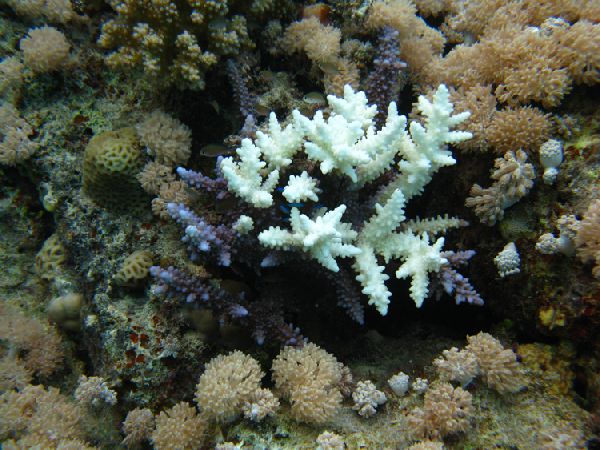Equatorial pacific presently known for its unique corals may soon have to loose its share of reefs. A study published recently claims that increasing temperatures will result in the corals vanishing from equatorial pacific by the end of the century. However, another similar study conducted simultaneously states that the ocean currents may behave in a strange manner and mitigate the warming effect in islands surrounding the equatorial pacific. The pacific islands will thus become a permanent refuge for the corals in the coming times.

The trade winds at the equator push the surface current from east to west direction. A swift counter current develops 100 to 200 meters below that flows in the opposite direction. Known by the name of Equatorial Undercurrent (EUC), it is rich in nutrients.
As this undercurrent hits an island water gets deflected upwards. This process results in nutrients along with cooler water reaching up the surface. This will be the place in future, which will emerge as a breeding ground for corals, despite the temperatures rising in the surrounding equatorial pacific.
Comprehensive research has been conducted on the subject and the satellite images for the region leave little doubt that the process of transition has already started. The global ocean chlorophyll levels have been rising in the region and the patches of the ocean around the pacific region show the presence of corals, which have already started shifting base. The region is presently concentrated around Galapagos island in pacific region.
The chlorophyll patches fade as the satellite imagery shifts to the western edge of the island giving credential to the scientists claims that regions in the immediate vicinity of equatorial pacific will be home to corals and marine life in future.
The research was funded by National Science Foundation, a premium research institute that has been instrumental in carrying similar studies in other parts of the world.
Via: Whoi




